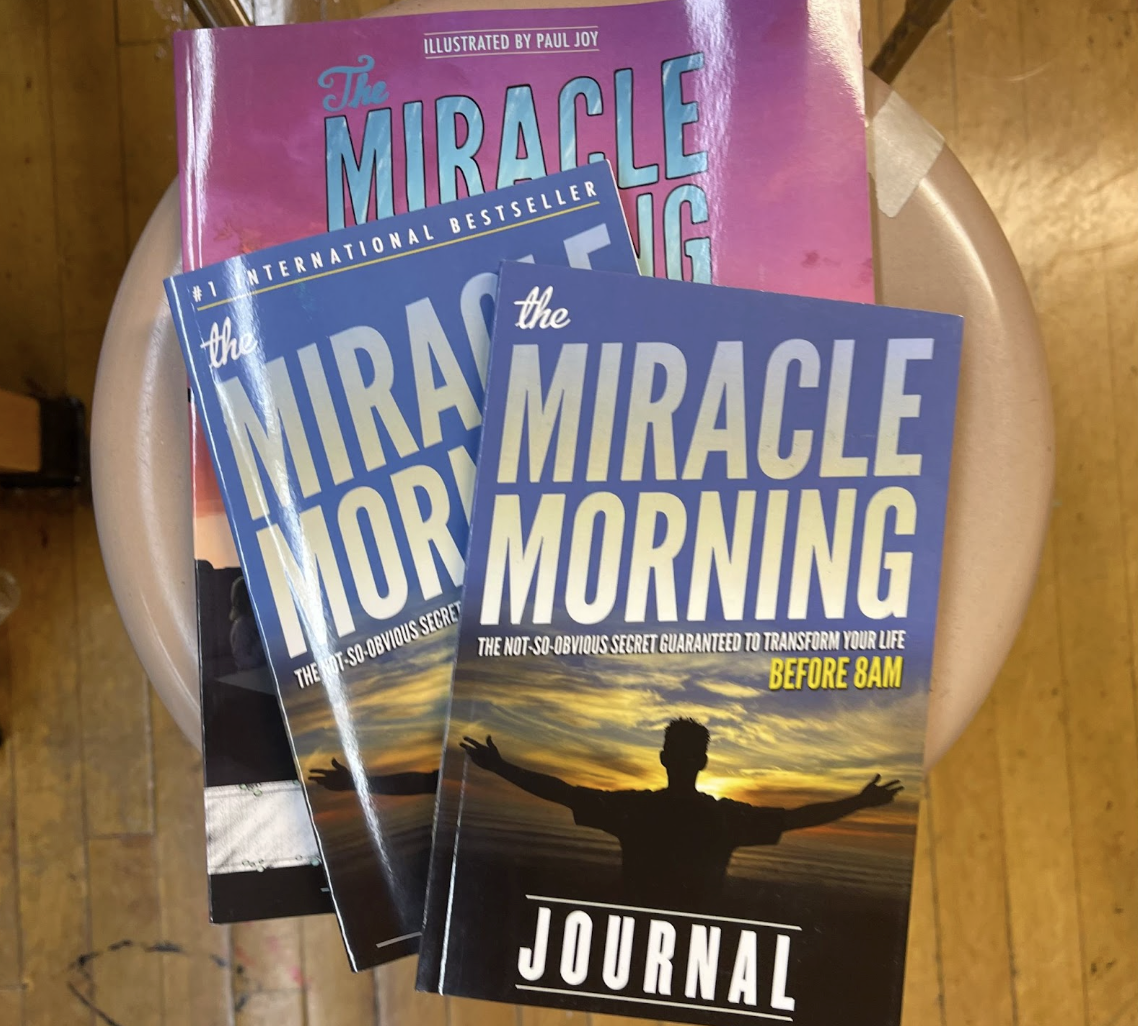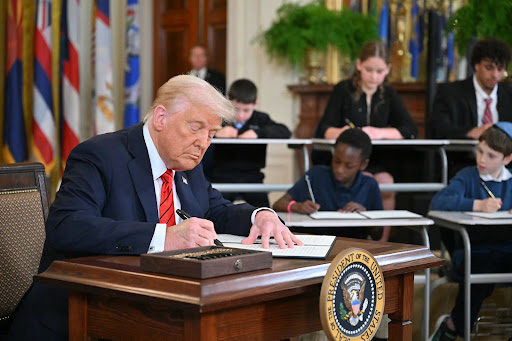Starting in the fall of 2022, Brooklyn Tech advisory teachers began distributing The Miracle Morning books, a self-help series, to students. The books by entrepreneur and motivational speaker Hal Elrod recommend a morning routine meant to improve productivity and overall happiness. However, students and faculty have mixed reviews, and some concerns.
In addition to The Miracle Morning book, advisory teachers also supplied students with a coloring book, entitled The Miracle Morning Art of Affirmations, and The Miracle Morning Journal, with the additional The Miracle Morning Book for College Students only given to senior advisory classes in the first semester of the 2023-2024 school year.
Each of the three books costs $19.95, bringing Tech’s total investment in The Miracle Morning for 6000 students to about $350,000.
The campaign to issue these books was initiated by Assistant Principal of College Services and Attendance, Ms. Lourdes Cuesta, as a means to strengthen the advisory curriculum and give students a free resource to aid their time management skills and improve their mental health. The Miracle Morning books were a convenient choice, both accessible to Tech’s advisory curriculum budget and one of the few Social and Emotional Learning books approved by the Department of Education for use in high schools.
Principal David Newman noted that the books have become a popular resource across other educational institutions. “It’s pretty widespread out there,” he said. “We’re surely not the only school using it, on any level.”
Other high schools in the Brooklyn North superintendency (encompassing 42 high schools and five secondary schools across districts 14, 15, 16, 19, 23, 32, and 13, Tech’s district) have also introduced the books to students. Brianna Greenspan, co-author of The Miracle Morning Art of Affirmations coloring book, recently spoke at a Brooklyn North principal meeting about how to implement The Miracle Morning books in the classroom.
The man behind The Miracle Morning books has an intriguing story. Elrod, the founder of The Miracle Morning company, uses his background and life story to promote his work. Before launching his career as a motivational speaker and publishing The Miracle Morning books, he worked as a door-to-door knives salesman at Cutco, a company convicted of deceptive recruiting tactics and labor law violations in the past. After a devastating car crash, Elrod began what would become his lifelong profession – motivational speaking, and eventually, writing.
Elrod’s career has since exploded. Elrod now receives $20,000 to $30,000 for speaking engagements, while his books, internet followers, and most recent documentary continue to rise in success.
The foundational concept of The Miracle Morning is simple. In this six-step morning routine, Elrod recommends waking up early every morning, exercising, meditating, journaling, vision-boarding, and reciting affirmations. While some of his recommendations, such as exercising, are thoroughly proven by scientific research to aid mental health, others, namely vision-boarding and affirmations, do not have such scientific backing. Nevertheless, Elrod pushes controversial claims that The Miracle Morning routine can help readers wean off of antidepressants, or even cure cancer, claiming his novel The Miracle Equation was one of the factors that helped cure his lymphoblastic leukemia.
The first few pages of the original Miracle Morning book are filled with positive reviews, where disciples of the program rave about weight loss, intense happiness, and even coming off of their medication after adopting the recommended routine. Typical of self-help books, The Miracle Morning claims that it will “change your life,” but many students who were assigned these books in their advisory classes found themselves unaffected and found the routine hard to adopt.
For many Tech students, commute time, demanding coursework, and lack of sleep make it difficult to get up early enough to complete The Miracle Morning routine. Tinlay Pelzom (‘27), who had the Dean and the Coach of the Junior Varsity Basketball Team Mr. Elmer Anderson as her advisory teacher, said that she “hadn’t really touched” The Miracle Morning books, explaining that the outlined routine was “inaccessible” to her because of her hour-long commute.
“It’s unrealistic for high school students,” said PharmD major Fiona Huang (‘25). “A lot of us don’t have time to be, in the morning, meditating and reading and exercising and writing in a little journal.”
In a recent Survey Instagram poll, only eleven percent of respondents found The Miracle Morning books to be helpful.
Students expressed that they believe the funds used to purchase The Miracle Morning could have been put to other uses in advisory classes. Huang believes it to be a place where students can learn to “manage [their] time and manage [their] stress.”
Tech faculty have also had a mixed response to The Miracle Morning. In a recent professional development session, there was pushback from some teachers who found The Miracle Morning books to be a form of “pseudoscience,” or a set of beliefs that are mistakenly regarded as scientifically backed.
“Some people got preoccupied with notions of pseudoscience and then started being a bit argumentative,” said Mr. Newman. “I don’t want to say it went entirely off the rails, but it went off the rails.”
The pushback from teachers became so fierce that the chat function on the video call was eventually disabled by the facilitators of the session.
The faculty response to The Miracle Morning has not been all negative, however. Some advisory teachers are fond of the books. Mr. Anderson showed his students TED Talks by Elrod and even recommended and shared the books with his players.
Black History 365 and advisory teacher, Mr. Adam Stevens, took a well-rounded approach to addressing the criticism surrounding The Miracle Morning by tasking his class of seniors to find parts of the book they found useful, while also pointing out parts they found problematic. Stevens warns his students that self-help books can “open a door to self-blame,” where individuals who read the book will blame themselves, rather than structural issues, if they do not accomplish what the book promises they will.
“In my advisory [class], I just simply warn them, ‘Hey, there are some useful tips in this book, but it’s part of an industry that has this huge, very troubling blind spot. So take it for what it’s worth,’” said Mr. Stevens. “I think ultimately it makes you a wiser person if you have a little bit of assistance in identifying what’s harmful.”
The Miracle Morning books are also a completely free resource for students, which Stevens believes is “kind of remarkable,” and a rare occurrence in a school as large as Tech.
Across advisory classrooms, teachers will continue to distribute and teach The Miracle Morning books. Despite conflicting opinions regarding the efficacy of the books, they will continue to have a presence in advisory classrooms for the foreseeable future.








































